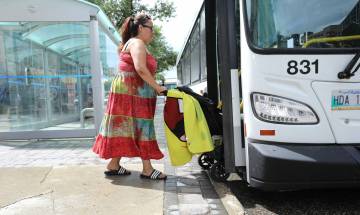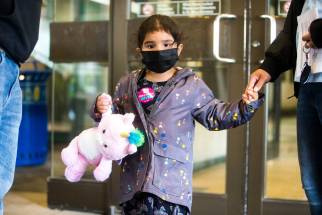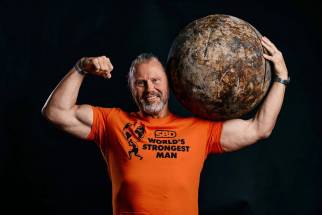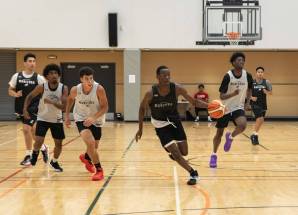Epidemiologists told us so, but we keep letting COVID rule our lives
Read this article for free:
or
Already have an account? Log in here »
To continue reading, please subscribe:
Monthly Digital Subscription
$0 for the first 4 weeks*
- Enjoy unlimited reading on winnipegfreepress.com
- Read the E-Edition, our digital replica newspaper
- Access News Break, our award-winning app
- Play interactive puzzles
*No charge for 4 weeks then price increases to the regular rate of $19.00 plus GST every four weeks. Offer available to new and qualified returning subscribers only. Cancel any time.
Monthly Digital Subscription
$4.75/week*
- Enjoy unlimited reading on winnipegfreepress.com
- Read the E-Edition, our digital replica newspaper
- Access News Break, our award-winning app
- Play interactive puzzles
*Billed as $19 plus GST every four weeks. Cancel any time.
To continue reading, please subscribe:
Add Free Press access to your Brandon Sun subscription for only an additional
$1 for the first 4 weeks*
*Your next subscription payment will increase by $1.00 and you will be charged $16.99 plus GST for four weeks. After four weeks, your payment will increase to $23.99 plus GST every four weeks.
Read unlimited articles for free today:
or
Already have an account? Log in here »
Hey there, time traveller!
This article was published 27/07/2022 (1235 days ago), so information in it may no longer be current.
When governments around the world started to eliminate social and economic pandemic restrictions earlier this year, it was based on a common-held dream: with vaccinations and higher levels of natural immunity through infections, we could fight off COVID-19 and return to a more or less normal life.
COVID-19, we were told, would evolve into a nuisance much like the common cold. In other words, although unpleasant, it was something we could certainly live with.
Epidemiologists and public health experts denounced this dream, and warned that doing nothing to control the spread of COVID-19 would plunge us into an endless pandemic as new variants became more aggressive and successful at evading natural or vaccine-induced immunity. They cautioned that COVID-19, even though it sometimes produces mild symptoms, would make us feel very, very sick.
On behalf of those who offered those warnings, I offer a simple but powerful message: they told you so.
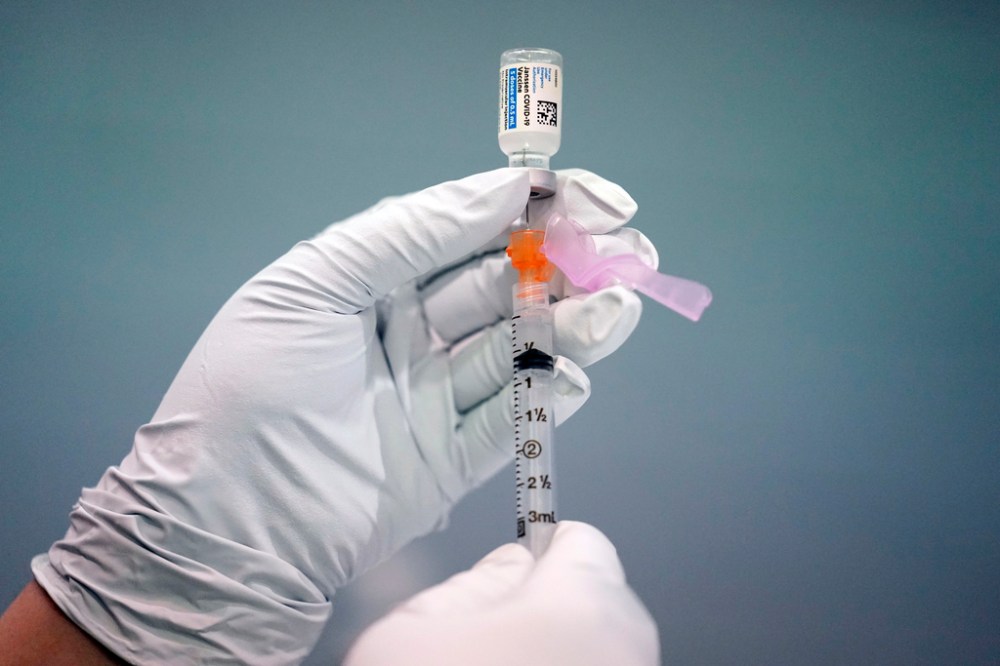
The world is indeed trapped in an endless pandemic driven by new, highly contagious variants that are not as deadly but just as disruptive as the earliest iterations of the novel coronavirus.
To be clear, vaccinations are still highly effective at protecting us from serious illness, but the current generation of vaccines is less effective at preventing us from getting infected. Updated vaccines are coming this fall and should help if we can get people to step forward for boosters. Big ‘if’ there.
However, for the time being, we’re trapped in a hell of a slightly different variety.
The impact of COVID-19 continues to vary greatly from person to person, but increasingly those who are infected — or re-infected — report heightened cold symptoms and prolonged periods of recovery. We are getting sicker with greater frequency; even those who had COVID-19 recently find they are falling ill, again, within a few weeks.
The removal of social and economic restrictions offered all of us more freedom. It also created massive social and economic disruptions that may, if new variants live up to expectations, rival the effect of government restrictions.
Just consider the way in which our “new normal” affects employment.
COVID-19 is causing mayhem in key sectors including health care, emergency responders, transport and supply chain and — the one that most Canadians know about or have experienced — airports and the airline industry. All of these sectors are operating below minimum staffing levels because they either cannot find new people to fill job openings, or workers are sick.
The most graphic example is the air transportation industry. Just about every major job category related to airlines and airports — air traffic controllers, baggage handlers, ticket agents, flight crews — is critically short of bodies. Thanks to the virus, there aren’t enough people willing or able to do these jobs and as a result, luggage is disappearing and flights are being delayed or cancelled. Those disruptions will be with us for the foreseeable future.
The situation is so dire in airports, that some are offering cash bonuses to security screeners if they do not take time off for any reason, including vacation and sick days.
The policy is driven by desperation, of course, but bribing sick employees to report to work is going to make travelling through airports risky. Given that variants spread from continent to continent in the respiratory systems of travellers, we’re setting the stage for continued aggressive spread of the virus.
The COVID-19 labour shortage is contributing to our strained economic conditions.
The U.S. labour department reported this week that between June 29 and July 11, 3.9 million Americans across all sectors of the economy missed time at work because of COVID-19, up from 1.8 million in the same period a year earlier.
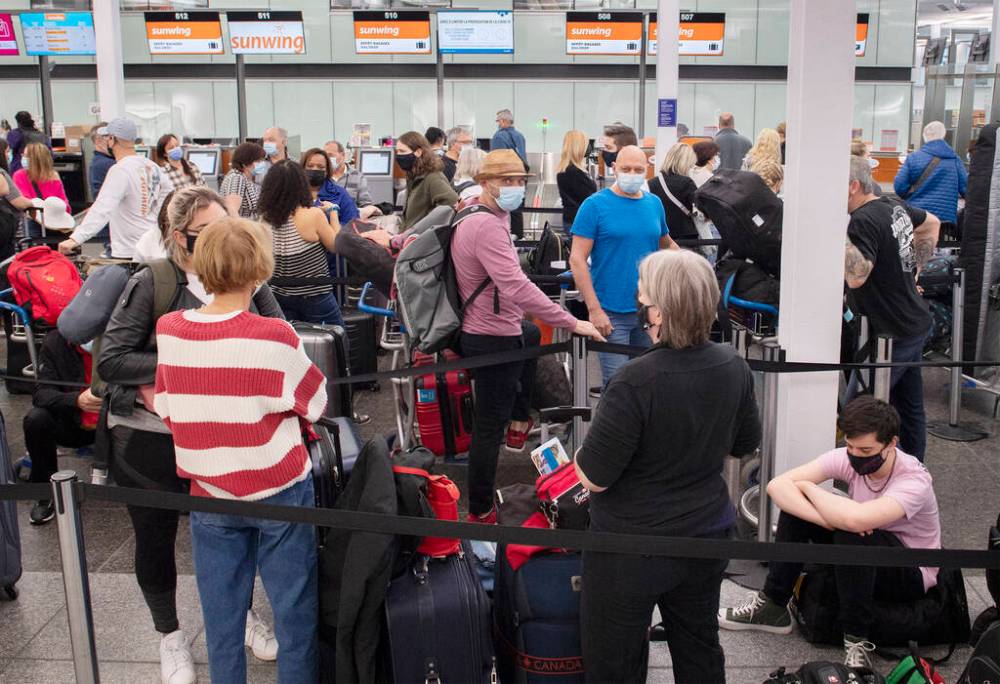
The current levels are only half of what they were in January, but given the fact the Omicron BA.5 variant is more contagious than any other variant, there are concerns we are only seeing the tip of the sick-leave iceberg.
All of which is to say that we’re still looking for the right balance in our fight to live with the virus.
It’s unlikely the world can survive another round of severe social and economic restrictions. Closing schools, stores and offices would reduce the spread of the virus but it would have a disastrous effect on our well-being.
What, then, can we do?
The continued refusal of governments — in Canada and around the world — to implement mandatory masking in public places is a real head-scratcher. If we could shop, watch a movie and otherwise move about our communities and all we had to do is wear a mask, isn’t that a reasonable sacrifice we’d all be prepared to make?
Many people would undoubtedly say yes.
We’d better start looking for easy and effective interventions now. If we wait until a new variant, that is both virulent and resistant to vaccines, easy and effective won’t be enough.
dan.lett@winnipegfreepress.com

Born and raised in and around Toronto, Dan Lett came to Winnipeg in 1986, less than a year out of journalism school with a lifelong dream to be a newspaper reporter.
Our newsroom depends on a growing audience of readers to power our journalism. If you are not a paid reader, please consider becoming a subscriber.
Our newsroom depends on its audience of readers to power our journalism. Thank you for your support.


